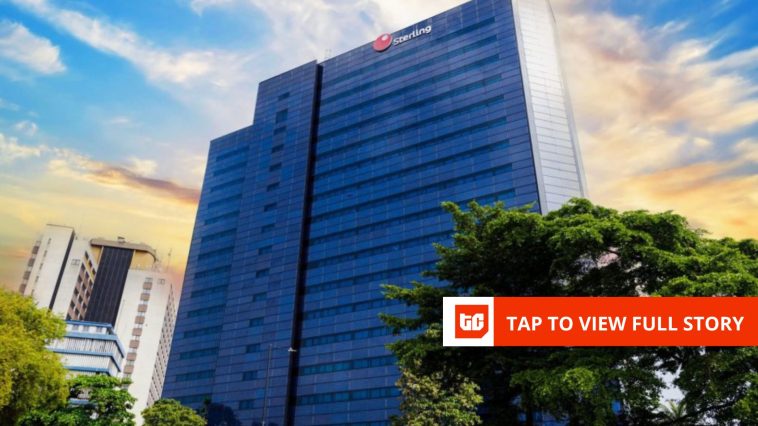Sterling Bank, a tier-2 Nigerian commercial bank with a market capitalization of ₦174.76 billion, has raised salaries for its over 3,000 employees to help them cope with rising living costs and inflation, sources familiar with the matter confirmed. The salary adjustment, said to be around 7%, was communicated in an internal memo in early January 2025.
This move continues a trend among Nigerian banks to review compensation in response to economic pressures on consumer spending. In August 2024, Sterling Bank introduced a cost-of-living adjustment (COLA) stipend, paying ₦75,000 to employees from executive trainee to assistant banking officer levels. It remains unclear if this stipend will continue alongside the new salary structure.
While the precise figures are not publicly disclosed, three people confirmed the adjustments are based on employees’ grade levels. Sterling operates a salary banding system with increases typically ranging from 7% to 10%, and recent adjustments have moved many employees to the top of their respective bands. For instance, executive trainees (ETs), previously earning ₦327,000 monthly, will now take home ₦351,000. Senior executives (junior roles above ETs) on a ₦500,000 salary will see their pay rise to ₦527,000.
To manage pay increases without promoting employees to higher ranks, Sterling Bank uses a tiered salary structure that includes internal “notches” within each grade level, allowing for raises without formal promotions, according to sources familiar with the bank’s compensation policies.
“Instead of moving employees up a grade during an economic downturn, companies may shift them to the higher band within their current grade,” said Chibuzo Ihentuge-Eric, an HR professional. “It’s a sideways adjustment that reflects market conditions.”
Sterling Bank did not respond to a request for comments.
Despite the salary increase, some employees were disappointed, expecting a larger raise in line with the 20-30% increases seen at other banks. “Considering inflation and the state of the economy, this feels underwhelming,” said one employee who requested anonymity.
In late 2024, Union Bank raised salaries by 40%, and GTBank followed suit with a 40% increase. These recent raises are linked to talent retention, a concern in an industry marked by high employee turnover and frequent poaching. Research shows competitive salaries are crucial in reducing employee attrition in Nigeria’s banking industry.
Sterling Bank’s profit after tax for the period ending September 2024 was ₦27.4 billion, a 67.07% increase year-on-year. The bank is projecting ₦121.8 billion in gross earnings for the first quarter of 2025.
The bank’s personnel expenses reached ₦22.6 billion as of September 2024, a 38.65% increase from the previous year. If the new salary adjustments raise expenses by the typical 10%, the bank’s wage bill would be around ₦24.86 billion. Despite this, Sterling’s wage bill remains one of the lowest among its peers. For comparison, Union Bank reported ₦34 billion in personnel expenses, Fidelity Bank ₦43.6 billion, and FCMB ₦56.5 billion.
Get the best African tech newsletters in your inbox





GIPHY App Key not set. Please check settings